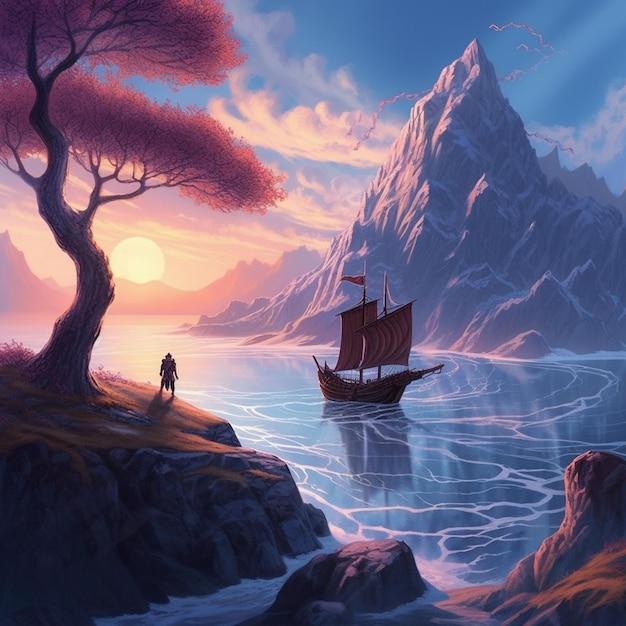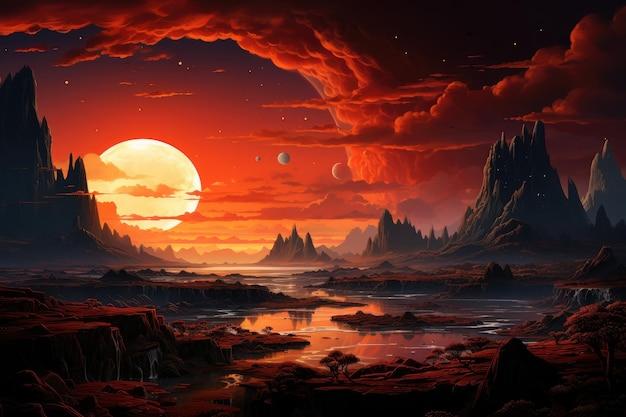Picture the world in the 15th century—a time when territories were vast, maps were incomplete, and the mysteries of the unknown beckoned adventurers. European exploration during this era was driven by a multitude of compelling factors, propelling brave souls to set sail to uncharted lands. But what were the main reasons that inspired these daring voyages?
In this blog post, we will delve into the three primary motivations behind European exploration. We’ll uncover the human desire to embrace the unknown, the insatiable thirst for wealth and resources, and the fervor to spread religion and expand territories. Join us on a captivating journey as we unravel the tales that shaped history and led to the discovery of new worlds.
So, grab your compass and get ready to navigate the intriguing reasons behind European exploration in the 15th century. Let’s delve into the passions that pushed the boundaries of human exploration and forever changed the course of our world.

The Three Main Reasons for European Exploration
Economic Gain: Trading, Wealth, and Spices
One of the primary reasons that motivated Europeans to explore the world was the pursuit of economic gain. During the late 15th and early 16th centuries, European countries sought new trade routes in order to establish lucrative trade networks and acquire valuable goods. At the time, the Ottoman Empire controlled major trade routes, making European nations desperate to find alternative paths. With the discovery of the Americas and the opening of new sea routes, the Europeans saw incredible potential for obtaining wealth and resources.
The desire to acquire valuable spices was a key driver of exploration. Spices like cinnamon, pepper, and cloves were highly sought after for their ability to preserve and enhance the taste of food. Moreover, they were considered status symbols and had medicinal properties. By bypassing the middlemen who controlled the spice trade, Europeans hoped to gain direct access to these precious commodities and secure significant profits. This pursuit of economic gain and the potential for immense wealth spurred European explorers to sail into the unknown.
Expansion of Influence: Power, Prestige, and Land
Another significant reason for European exploration was the desire for expansion of influence. European powers sought to assert dominance over new territories and extend their power globally. Conquering new lands and establishing colonies provided countries with resources, labor, and strategic military outposts to safeguard their interests.
The European powers engaged in fierce competition, each vying for superiority and supremacy. Establishing colonies allowed them to stake their claim over vast territories and expand their empires. The acquisition of new territories enhanced their geopolitical influence, prestige, and power in the global arena. This hunger for influence drove explorers to brave the unknown and claim new lands on behalf of their countries.
Knowledge and Discovery: Curiosity, Science, and Geography
European exploration was not solely driven by economic motives or the desire for power. Curiosity, the pursuit of knowledge, and the thirst for discovery played a significant role in driving explorers to venture into uncharted territories. The Renaissance, a cultural and intellectual movement, sparked a fascination with knowledge, science, and the natural world. Explorers sought to unravel the mysteries of the world and understand its diverse cultures, flora, and fauna.
The desire for scientific advancement, particularly in the fields of cartography, astronomy, and geography, fueled exploration. Explorers like Christopher Columbus and Ferdinand Magellan aimed to broaden humanity’s understanding of the Earth by mapping unexplored regions and documenting their findings. Their discoveries and scientific advancements not only expanded human knowledge but also paved the way for future voyages and exploration.
In conclusion, European exploration was driven by a combination of economic gain, the thirst for power and influence, and a quest for knowledge and discovery. The allure of wealth, the ambition to expand empires, and the curiosity to uncover the unknown motivated European explorers to embark on perilous journeys that forever reshaped the course of history.

FAQ: All You Need to Know About European Exploration
In the vast annals of history, European exploration holds a significant place. It was a time of great pioneers and adventurers who embarked on perilous journeys across the oceans to discover new lands and expand their horizons. In this FAQ-style subsection, we will delve into the captivating world of European exploration, unravelling its mysteries, motivations, and main reasons. So sit back, hold onto your hats, and let’s explore!
Why Are People Driven to Explore
Human beings have an innate curiosity that propels us to explore the unknown. Just like when you were a kid and couldn’t resist peeking under the bed to find out what lurked beneath, exploration is the grown-up version of that same excitement. Our thirst for knowledge, the desire to discover new cultures, and the thrill of venturing into uncharted territories have always pushed us forward. After all, as the saying goes, “Curiosity killed the cat, but satisfaction brought it back…with a great story to tell!”
Is There Anywhere Left to Explore
Ah, the age-old question. With Google Earth, satellite imagery, and every corner of the globe seemingly uncovered, one might think there’s nowhere left for intrepid explorers to set foot. But fear not, my dear adventurers! While it’s true that most parts of the Earth have been discovered, there are still hidden nooks and crannies waiting to be explored. Plus, let’s not forget about outer space! Who knows what awaits us beyond the stars? So, put on your space helmet and keep that explorer’s spirit alive!
What Do You Mean by Exploration
Exploration, my dear readers, is not just about conquering new lands or planting flags on uncharted islands. It goes beyond physical boundaries and extends into the realm of ideas, knowledge, and personal growth. It’s about diving headfirst into the great ocean of possibilities, embracing uncertainty, and expanding our understanding of the world. Picture yourself as Columbus, but instead of discovering America, you’re exploring the vast expanse of your own potential. Go forth, intrepid explorer, and conquer your own uncharted territories!
How Do You Accept the Unknown
Ah, the unknown, that mysterious realm where clarity disappears, and adventure begins. To accept the unknown, you must first embrace it. Imagine yourself as a pirate aboard a ship sailing towards a legendary treasure. You don’t know what awaits you, but you trust in your own abilities and are open to whatever comes your way. Embrace that same spirit in your own life: be open to new experiences, ready to adapt, and willing to learn from the unexpected. Because, my dear reader, it is in the unknown where the greatest treasures are often found.
What Were the Three Main Reasons for European Exploration
Now, let’s travel back in time to the era of the great European explorers. They had their own reasons to set sail and brave the treacherous seas. Here are the three main motives that propelled them forward:
1. Wealth and Resources:
The allure of new trade routes and the promise of valuable resources were irresistible to those seeking wealth and prosperity. European nations saw the opportunity to establish lucrative trade networks, access rare goods, and bolster their coffers.
2. Spreading Religion and Christianity:
Religious fervor played a significant role in European exploration. Many explorers set sail with the mission to spread Christianity to new lands and convert indigenous populations. They believed it was their divine duty to bring the message of salvation to the world.
3. Curiosity and the Spirit of Discovery:
Last, but certainly not least, was the insatiable curiosity and thirst for knowledge that burned in the hearts of these brave explorers. They yearned to unravel the mysteries of the world, map uncharted territories, and leave their mark on history. Their hunger for discovery knew no bounds.
Is the Unknown Good or Bad
Ah, my curious reader, the unknown is a fickle thing. It can be both a blessing and a challenge. On one hand, embracing the unknown can lead to tremendous personal growth, exhilarating adventures, and jaw-dropping discoveries. On the other hand, it can also bring uncertainty, fear, and the occasional case of lost socks. But remember, dear adventurer, the greatest rewards often lie on the other side of fear. So strap on your courage and dive headfirst into the great unknown!
What Are the Types of Exploration
Exploration comes in various flavors, each with its own unique charm. Here are a few types of exploration to give you a taste of the possibilities:
1. Physical Exploration:
This involves venturing into unexplored or distant physical locations, whether it’s hiking through dense jungles, summiting majestic mountains, or traversing the vast expanse of the sea. Think of it as a real-life game of “Where’s Waldo,” but without the striped sweater.
2. Intellectual Exploration:
Intellectual exploration involves delving into the uncharted territories of knowledge and ideas. It’s about expanding your mind, challenging your beliefs, and seeking answers to life’s most profound questions. Think of it like taking a mental spelunking trip into the depths of the human psyche.
3. Emotional Exploration:
Emotional exploration is the journey of self-discovery and understanding our own thoughts, feelings, and motivations. It’s like embarking on a road trip through the winding highways of your own emotions. Buckle up and get ready for some emotional turbulence!
What Does It Mean to Embrace the Unknown
To embrace the unknown means to welcome it with open arms, like a long-lost friend who surprises you with an all-expenses-paid vacation. It’s about letting go of the need for absolute control and putting your trust in the journey itself. Embracing the unknown means surrendering to adventure, embracing uncertainty, and acknowledging that the most beautiful moments in life often come when we step outside our comfort zones. So, my courageous readers, embrace the unknown like a daredevil acrobat on a trapeze – with style, grace, and maybe a few flips!
Is It Human Nature to Explore
Absolutely, my fellow adventurers! Exploration is woven into the very fabric of our being. From the early days of our existence as a species, humans have had an insatiable drive to explore and discover. It’s what has propelled us forward, helped us adapt to new environments, and led to the birth of civilization. So, the next time you feel that spark of curiosity ignite within you, remember, dear reader, exploring is not just a pastime, but a fundamental part of what makes us human.
European exploration was a remarkable chapter in human history, filled with daring individuals who sailed through uncharted waters and discovered lands unknown. Whether driven by the pursuit of wealth, religious fervor, or an insatiable curiosity, these explorers left an indelible mark on the world. So, as we bid farewell to this FAQ-style subsection, let’s raise our metaphorical glasses to the brave souls who dared to venture beyond the known, reminding us to embrace the unknown and keep our own inner explorers alive. Happy exploring!
